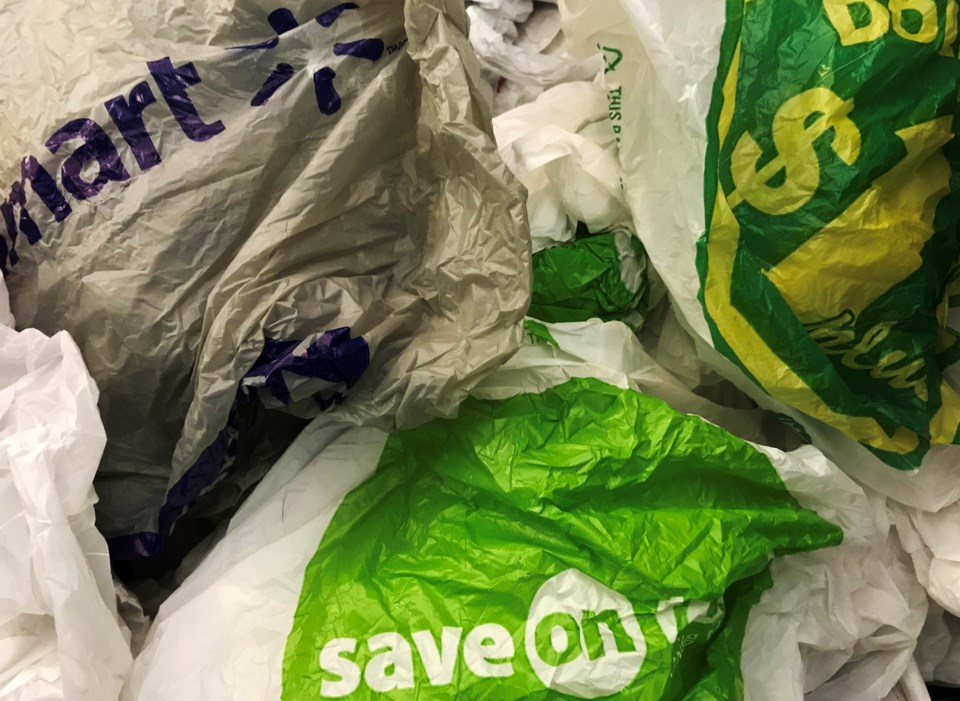The City of Delta will be implementing its own ban on plastic checkout bags.
Council on Monday unanimously approved a regulation to prohibit the provision of single-use plastic bags to customers, although there will be several exemptions for items such as meat or frozen food, plants, prepared foods, bulk items, prescription drugs, printed materials, linens and laundry.
The regulation also prohibits prepared food in any food service ware that contains polystyrene foam, but also comes with a few exceptions.
Consultation with the city’s business community and public outreach will take place prior to final adoption of the bylaw in early 2022.
After adoption, businesses will be given six months to transition prior to implementation and enforcement.
Two years ago, a delegation of Seaquam Secondary students requested council implement a plastic bag ban. At the time, council agreed with a staff recommendation that a bylaw should be harmonious with neighbouring municipalities.
Because the City of Victoria's plastic bag bylaw had been quashed by the BC Court of Appeal, it was also agreed that a province-wide approach was preferred.
Last summer, the province gave municipalities the authority to regulate certain single-use items, such as plastic checkout bags, which enabled Delta to enact its own bylaw without needing provincial approval.
Cities including Richmond have since come up with bylaws.
Coun. Dylan Kruger had also put forward a motion for Delta to finally come up with a bylaw.
That was followed by Surrey council last month approving a Surrey Plastic Bags and Single-Use Items bylaw, which will be closely mirrored by Delta’s bylaw for consistency.
Metro Vancouver is also working on regulations and Delta’s bylaw is to align with the draft regional harmonized approach.
A report to Delta council notes some municipalities had been holding off on single-use item bylaw implementation during the COVID-19 pandemic due to concerns from businesses that were experiencing financial hardships.
Business restrictions related to the pandemic have been substantially lifted and the risk to businesses of implementing single-use item regulations is now low, the Delta report notes, adding that the provincial order requires a minimum six-month grace period to allow for public education and business transition.



